Junior doctors dispute: Fourth strike hits NHS in England
- Published
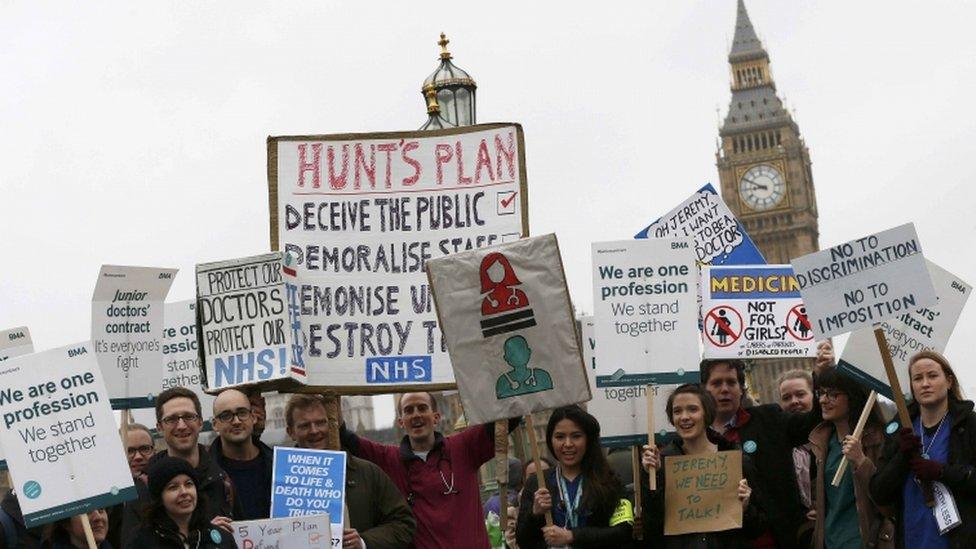
Junior doctors in England are taking part in a fourth walkout in their long-running contract dispute.
The 48-hour strike started at 08:00 BST as the doctors prepare legal challenges to the government's decision to impose changes to their pay and conditions from this summer.
Doctors are again providing emergency cover, but 5,000 operations and procedures have been postponed.
NHS England said the continued disruption was "deeply regrettable".
The latest action means the total number of treatments that have been delayed has now hit 24,500 during the dispute.
The Patients Association has come out in support of junior doctors despite the disruption, saying the government should not be imposing the contract.
But despite pleas from them and other organisations for both sides to get back round the negotiating table, the government and British Medical Association (BMA) have remained adamant they will not budge from their positions.
Sources indicated there was now little dialogue between ministers and the union with the first ever walkouts of emergency care in the history of the NHS planned for the end of April.
The all-out stoppages will take place from 08:00 to 17:00 BST on both 26 and 27 April and will see junior doctors refuse to staff A&E departments as well as emergency surgery and intensive care.
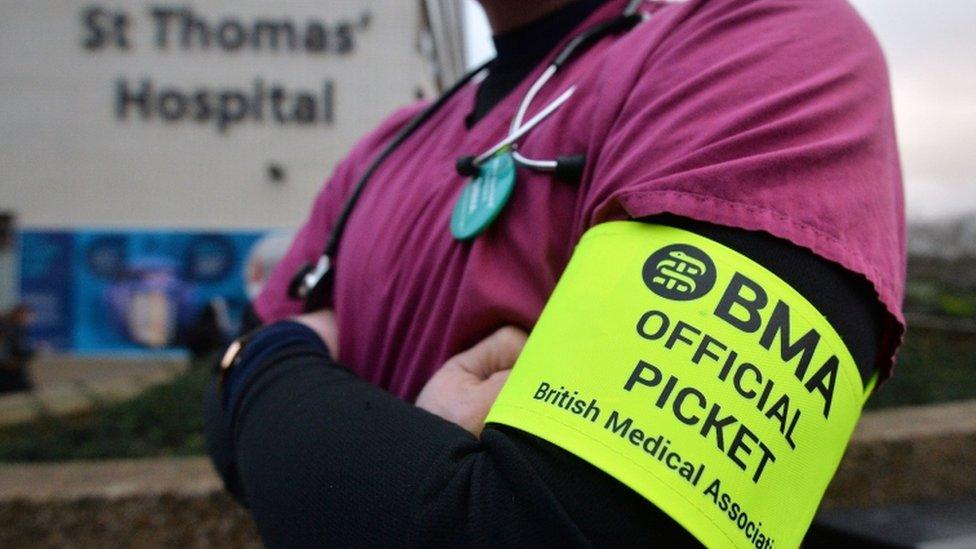
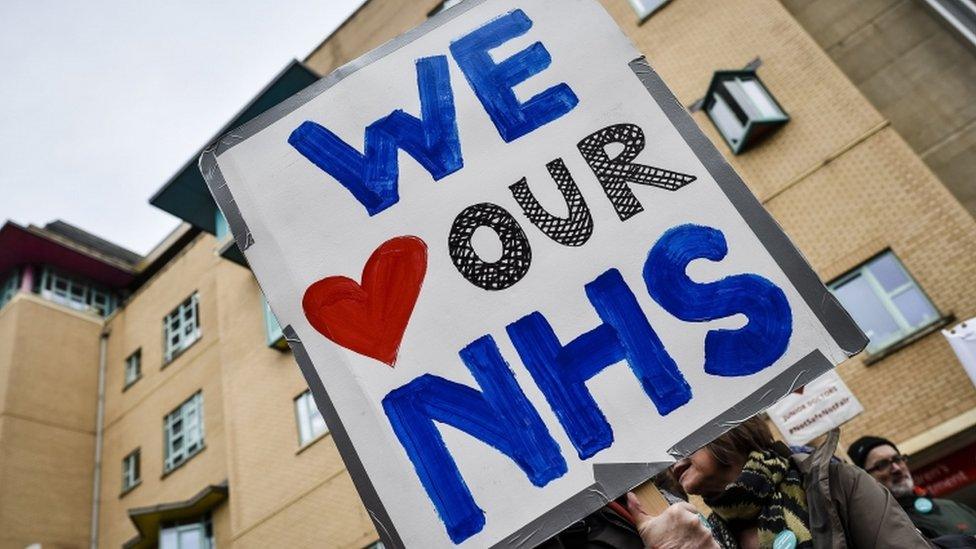
The BMA said it had been left with "no choice" in its fight against the government's plan to impose a new contract in which, it said, the profession had "no confidence".
Ministers have said the changes, which will see doctors paid less for working weekends while basic pay is increased, are needed to improve care at weekends. This is disputed by the BMA.

How the dispute reached stalemate
Talks at conciliation service Acas broke down in January
A final take-it-or-leave it offer was made by the government in February but was rejected by the BMA
Ministers subsequently announced the contract would be imposed in the summer
It will reduce the amount paid for weekend work, but basic pay is being increased
The BMA wants a more generous weekend pay allowance and more investment for more seven-day services - the government is not increasing the overall budget for junior doctors' pay
Two legal challenges are being pursued by doctors against the imposition
Hospitals are pushing ahead with the new contract - offers are expected to go out in May
The government is refusing to reopen talks, arguing it made compromises earlier in the year but the BMA did not

Dr Anne Rainsberry, of NHS England, said it was "deeply regrettable that thousands of patients are still facing disruption because of this recurring action".
She added: "As always, the safety and care of patients is our number one priority and everything possible is being done to make sure patients will still be able to access urgent and emergency services."
During the afternoon, NHS England released figures showing just under half of junior doctors turned up to work at hospitals, which is similar to what happened in the previous walkouts - many of those who are in work will be providing emergency cover as agreed.
Over the past few weeks, a host of organisations, including patient group National Voices and the Academy of Medical Royal Colleges, have come forward to call on the government to drop the imposition and the BMA to stop the strikes and reopen talks.
'Alienating'
As the latest strike got under way, Patients Association chief executive Katherine Murphy said the imposition was "not at all helpful".
"Junior doctors are the backbone of the NHS and it is vital that they are able to provide the safe and effective care that patients need. Such a highly trained and valuable part of the NHS should not be disregarded so lightly.
"At a time when financing the NHS is already at breaking point, we should not further risk losing more doctors whose training is funded by the public purse."
BMA junior doctors' leader Johann Malawana said: "By pursuing its current course, the government risks alienating a generation of doctors.
"If it continues to ignore junior doctors' concerns, at a time when their morale is already at rock bottom, doctors may vote with their feet which will clearly affect the long-term future of the NHS and the care it provides.
"Responsibility for industrial action now lies entirely with the government. They must start listening and resume negotiations on a properly funded junior doctors' contract to protect the future of patient care and the NHS."
But a spokeswoman for the Department of Health said: "This strike is irresponsible and disproportionate, and with almost 25,000 operations cancelled so far, it is patients who are suffering.
"If the BMA had agreed to negotiate on Saturday pay, as they promised to do through ACAS in November, we'd have a negotiated agreement by now."
- Published6 April 2016
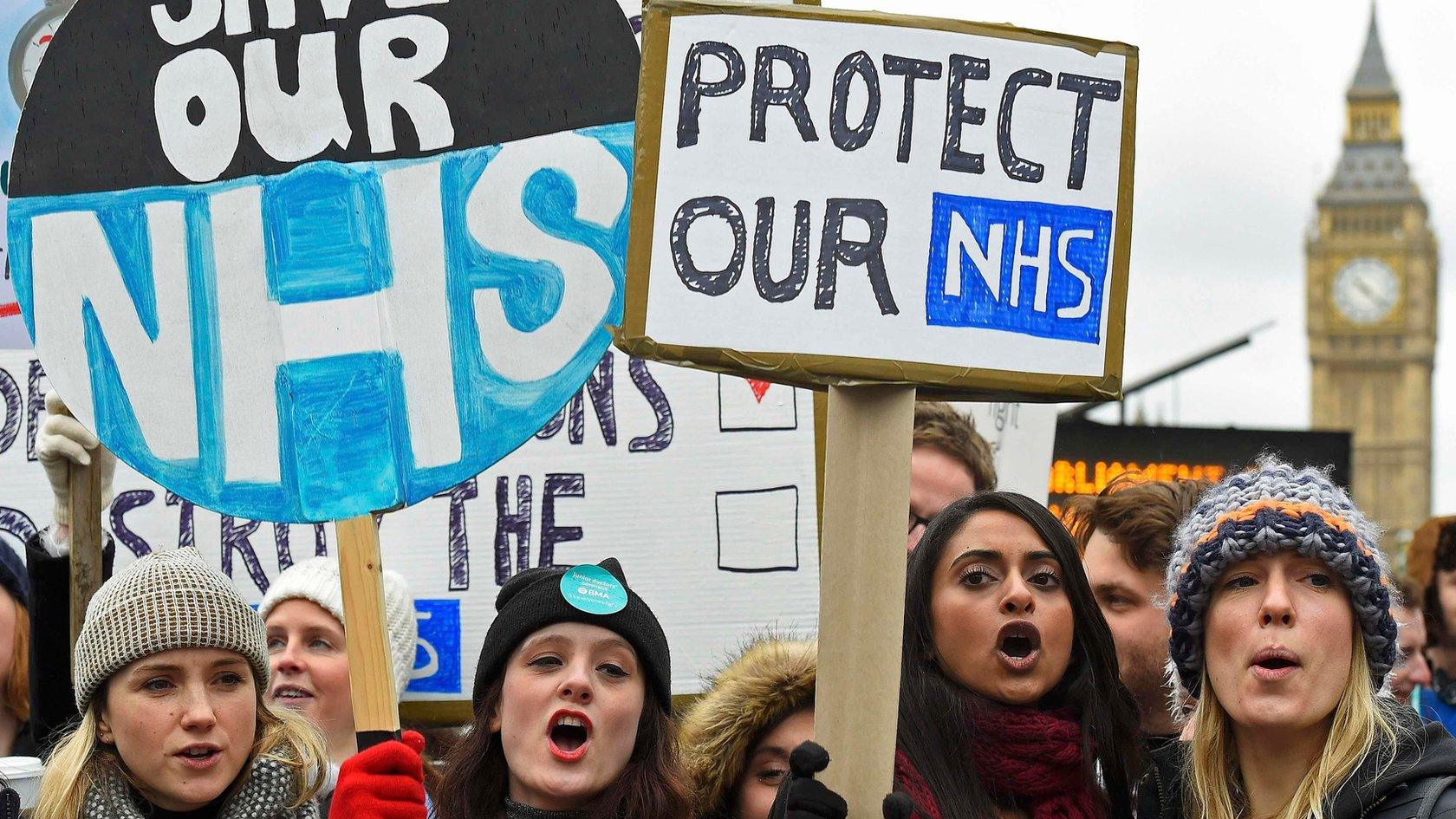
- Published6 April 2016
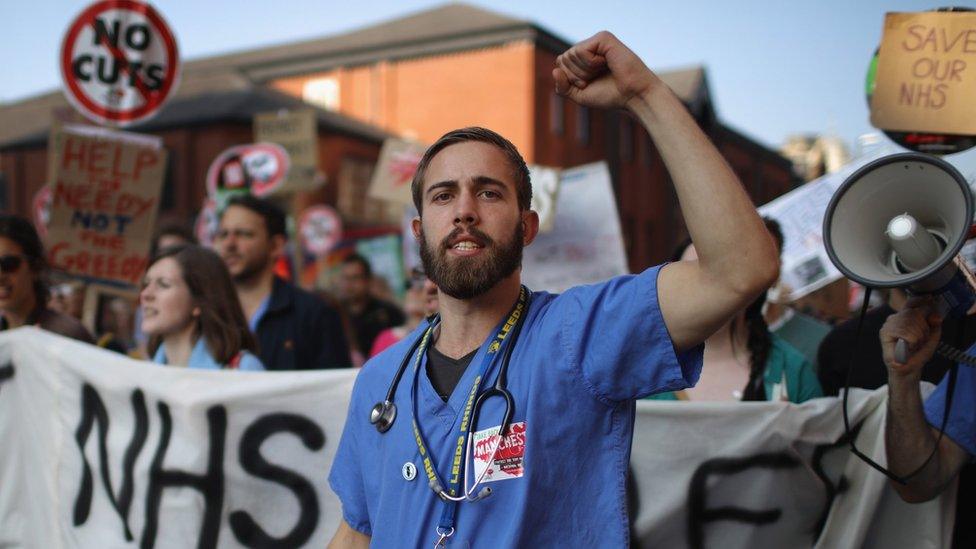
- Published6 April 2016
